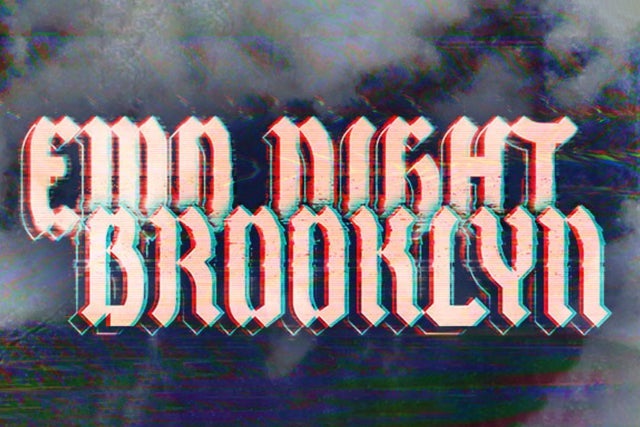Emo Night Brooklyn started as a Brooklyn bar singalong and grew into a traveling DJ party built on 2000s emo, pop-punk, and post-hardcore hooks.
From bar sing-alongs to big-room catharsis
The musical identity is clean and bold: DJs stack big choruses and let the room take lead vocals while tight cuts keep momentum high. Expect canon staples like
Sugar, We're Goin Down,
I Write Sins Not Tragedies, and
Misery Business, with a sly deep cut or two between them. The floor skews mixed-age, from longtime scene fans to newer listeners who found these songs through playlists, and the vibe stays friendly and cathartic. A common quirk is quick-cut edits that jump to the hook, then mute the track so the crowd can carry the line in full voice. Another habit is city-by-city nods, where the DJs slip in a hometown favorite or a cover version tied to the local scene. Some stops bring a guest vocalist from a touring band for one or two features, which lifts the energy without breaking the flow. Treat the song choices and production touches here as informed projections rather than locked-in facts.
Eyeliner, Patches, and Chorus Unity
Throwback look, present-tense joy
You will see black denim, band tees from
My Chemical Romance and
Panic at the Disco, studded belts, Vans, and thrifted hoodies with patches. Hair dye, black nail polish, and liner return, but the mood is generous, with people making space to jump together when a chorus lands. When
I Miss You drops, the room shouts "Where are you?" back at
Blink-182, and a few songs later you might hear a whole floor murmur so long and goodnight. The bridge of
Misery Business often becomes a call-and-response, and strangers trade high fives then go right back to singing. Many nights set up a simple photo corner with bright flash for Myspace-ready snaps, and enamel pins or throwback tote bags are the hot merch grabs. Expect mini-circles that bounce during pop-punk peaks, then calm resets for emo slow-burners before the next group sing erupts. People swap favorite deep cuts between songs, comparing first-show memories and new finds without the pressure of keeping up with trends.
Faders, Hooks, and the Art of the Drop
Hooks first, then heavier
Vocals are led by the crowd, so DJs often dip the original track at the chorus to let thousands of voices become the main instrument. Arrangements favor chorus-first structures, trimming or skipping intros so every 30-45 seconds lands another hook. Fast pop-punk sprints sit around 160-180 BPM, then ease into mid-tempo emo anthems that feel double-time when the drums pop back in. To keep guitars ringing naturally, they sometimes nudge pitch or pick songs in compatible keys so one outro melts into the next intro. When a guest singer or live drummer joins, the crew leaves space in the mix, with extra crash on downbeats and a simple kick pattern to anchor chants. The band-in-the-box is still the record you love, but the edits shape it for a room that wants peaks, drops, and big breath-before-the-chorus silences. Lighting usually mirrors this arc with color washes for verses and strobe hits on the count-in, but the focus stays on the singalong. A smaller but telling move is extending a bridge by eight bars to build the shout line, then slamming back into the chorus at a higher volume.
Kindred Voices for the Same Heart-On-Sleeve Crowd
Where your playlist overlaps
If you live for call-and-response melodies,
Taking Back Sunday fans will feel at home, since the party leans on shouted harmonies and traded lines. Listeners drawn to sharp rhythms and pop-punk punch will click with
Paramore cuts, especially when
Misery Business hits at full speed. The dramatic, chant-ready side appeals to
My Chemical Romance loyalists, with room-wide so long and goodnight moments that echo their finales. For glossy, uptempo bounce and clean gang vocals,
All Time Low energy maps neatly onto the DJ pacing. And if you like lyric-first confessionals,
Dashboard Confessional ties right into the quieter peaks before the next blast. Together, these artists mirror the mix of heart-on-sleeve writing and hook-forward editing that defines the night. Fans who rotate these bands on the same playlist will recognize how the transitions favor big choruses and shared catharsis.



